Pembrokeshire politicians have spoken out at the Senedd, over their concerns that proposals by Hywel Dda University Health Board to downgrade stroke services at Bronglais Hospital, will have a huge impact on communities across west Wales.
Campaigners travelled to Cardiff Bay on October 22 to voice their concerns over plans to downgrade stroke services at Bronglais Hospital before politicians debated a near-18,000-strong petition calling for mid Wales services to be protected.
Politicians in Cardiff Bay have been told that Bronglais Hospital should be viewed as a solution, not a problem as they debated proposals to downgrade stroke services at the Aberystwyth hospital.
Senedd Members debated calls to safeguard full stroke services at Bronglais Hospital after more than 17,000 signed one of the biggest petitions in the Senedd’s 26-year history.
Campaigners urged the Senedd and Welsh Government to intervene immediately to protect the stroke unit amid plans to downgrade the service to a “treat-and-transfer” model.
Under consultation proposals, stroke patients presenting at the Aberystwyth hospital could be transferred to the Prince Philip in Llanelli or Withybush in Haverfordwest.
Labour’s Carolyn Thomas, who chairs the Senedd’s petitions committee, said only a handful of petitions – including calls to scrap 20mph limits – have collected more signatures.
The petition, submitted by Bryony Davies from the Protect Bronglais Services campaign, warned patients face risky, long-distance transfers taking two hours if services are cut.
Leading the debate, Ms Thomas explained the Hywel Dda Health Board is expected to make a decision this autumn following a consultation between May and August.
She said Bronglais scored relatively well in a UK-wide assessment of stroke care services, with a ‘B’ alongside Withybush whereas Prince Philip and Glangwili received a ‘C’.
The petitioners expressed concerns about the potential implications for end-of-life care, warning stroke patients could die far away from their families.
Ms Thomas told Senedd members: “We noted the petitioners’ concerns that the role of family and friends in stroke rehabilitation is being overlooked, with distances and limited transport infrastructure making regular visits impractical.
“Using online platforms for patient communication instead is criticised as unrealistic, given stroke-related impairments and poor digital connectivity.”
Her committee has also received other petitions on the future of hospital care, raising alarm over a “crisis” at Glangwili and the loss of weekend services at Cardigan’s minor injuries unit.
Hywel Dda health board has argued the Bronglais changes are necessary to make stroke services more sustainable, with centralisation improving staff recruitment and retention.
But the petitioners pointed out that no equality impact assessment was carried out, urging the health board to “go back to the drawing board and run a truly consultative process”.
Paul Davies, the Conservative Senedd member for Preseli Pembrokeshire, backed the campaign, telling colleagues the proposals will have a “huge impact” across west Wales.
Warning patients face a round trip of 200 miles or more, he said: “Forcing us to travel further for essential and indeed vital services is totally unacceptable.”
Mr Davies pointed to a 2014 Welsh Government-commissioned study which recommended unnecessary journeys to access care should be eliminated in mid Wales. He also raised the Stroke Association’s opposition to the proposals.
He said: “Of course, we all accept that sometimes we have to travel further afield for very specialist services, but forcing us to travel further afield for essential and, indeed, vital services, is totally unacceptable, and it's clear that these stroke services are absolutely essential and vital for the well-being of people in the area.
“Forcing patients to travel huge distances to Haverfordwest and Llanelli, which is a round trip of 200 miles or more, especially on a poor transport infrastructure, is totally unacceptable.
“Now, back in 2014, the mid Wales healthcare study by Professor Marcus Longley and others recommended that unnecessary journeys to access care should be eliminated, with a co-ordinated and comprehensive examination of relevant pathways to ensure care is actually provided closer to home. Indeed, I know from bitter experience, when services have been taken away from Withybush hospital, just how difficult it is for patients to access services elsewhere.
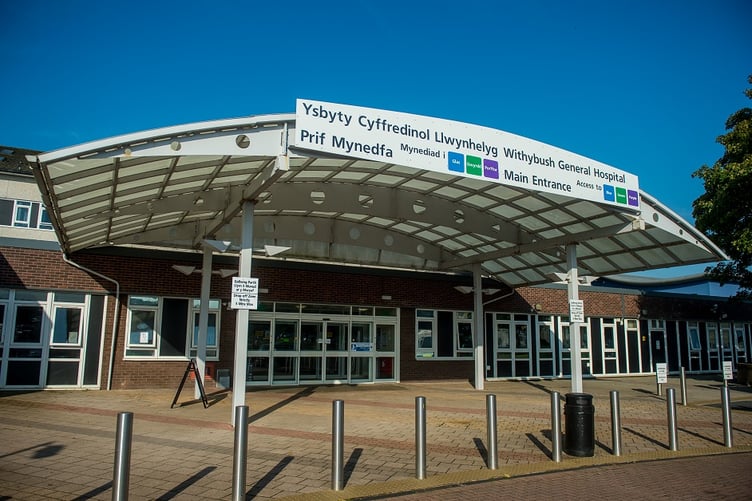
“To centralise these stroke services away from Bronglais hospital, when the unit has been declared the best out of all the stroke units in the Hywel Dda health board area, does not make any sense whatsoever. If patients are transferred to Haverfordwest and Llanelli, then it's impossible for family and friends to visit, and, as we know, family and friends play a key role in the rehabilitation of stroke patients.
“Crucially, the health board's proposals are not supported by the Stroke Association, which is the voice of stroke patients. They have made it very clear that the health board's current proposals risk undermining specialist-led treatment, fragmenting services and increasing health inequalities across Wales.
“Now, the health board tells us that these services are fragile. I accept that staff have to sometimes work in very difficult circumstances, and we are very grateful for everything that they do. But if we had seen better planning and appropriate investment then perhaps these services would not face the pressures that they do. And let's be clear: delivering health services in rural areas like this is different to delivering health services in more urban areas. That's why I've always advocated for a rural premium when it comes to delivering health services.
“The Welsh Government should accept that delivering health services in rural areas is different. That's why we need to see an appropriate planning framework that recognises that patient services are based on a geographical spread, not just determined by population.
“Now, I'm pleased that there is a lot of cross-party consensus to oppose the health board's proposals and to fight against the centralisation of services. It's so important that, as politicians, we work together on a cross-party basis, and that we work with the campaigners, and that we do everything we can to oppose the centralisation of these stroke services.
“What we need to see now is action, so that these stroke services stay put at Bronglais hospital. I want to reassure the campaigners and the people who've travelled here today to listen to the debate that I will continue to do what I can to support this important campaign.”
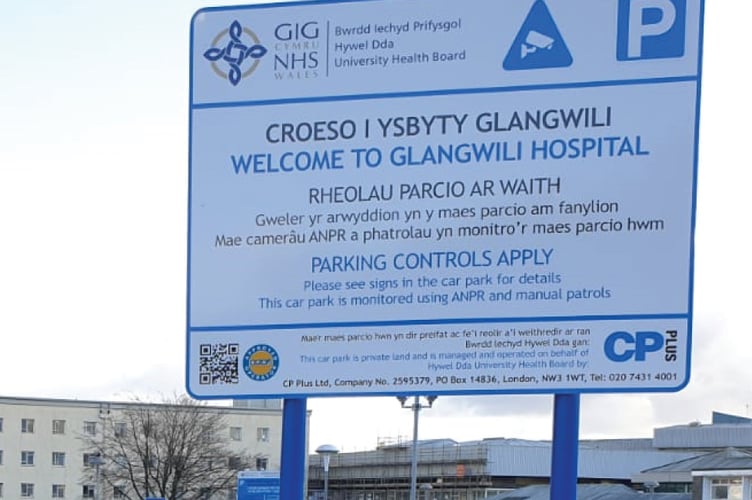
His Welsh Conservatives colleague, Sam Kurtz, Senedd Member for Carmarthen West and South Pembrokeshire also spoke on the matter, stating: “We've heard quite eloquently from Members across the Chamber, and across the political divide, the real issue that is at stake here, and they've put together a compelling argument as to why stroke services need to remain at Bronglais, and I wholeheartedly concur with them and agree.
“But I want to look at this from a wider perspective. My constituency, Carmarthen West and South Pembrokeshire, is sandwiched between where services could be moving to in Withybush, in Paul Davies's constituency, and Llanelli, in Lee Waters's constituency.
“Carmarthen West and South Pembrokeshire was the location of the proposed new west Wales hospital. That was earmarked for a number of years, and communities marched up the hill of a new hospital in west Wales only to be marched back down it again, when funding was never available because it was the wrong thing to do.
“I could stand as a constituency MS and say, 'Look, what a great idea it is to have a brand-new hospital in my constituency', saying that I'm delivering for my constituents. That's the easy political thing to do. The right thing to do is advocate for the health services that currently exist and the reasons why they must remain in those locations.
“Because the geography, as Paul Davies mentioned, is not changing. Aberystwyth is where Aberystwyth is on a map. Withybush is where Withybush is on a map. They aren't moving.
“So, let's talk about the fundamental issues that are at stake. When we spoke at the open meeting that Lisa Francis and those campaigners who have worked tirelessly on this organised in Aberystwyth, the points that I made there are still pertinent now, I believe. The health board is split in two, because we have the west constituent parts of the health board of Hywel Dda, and we have the east constituent parts of the health board.
“Those constituents of mine in Carmarthenshire and those that live in Carmarthenshire can access health services in Swansea, the Swansea Bay University Health Board area, far quicker than they can get to even Withybush in Pembrokeshire.
“So, for the health board to not reference the need to look at Swansea bay for pertinent services, I think is a failure in the way that this consultation has been brought forward. It is absolutely necessary to understand the geography of the Hywel Dda area.
“More broadly then, the west, Ceredigion and Pembrokeshire, why is it always the west that loses its services? Why is it always the west part of Wales that has to see its services move eastwards? When was the last time services moved eastwards into Withybush or up to Bronglais?
“When was the last time our communities, which we represent, the Llywydd represents, Paul represents, could say, 'Do you know what? Services have come back to us, after years of services being salami-sliced away and centralised into one location'? I think that is a disservice to the constituents that we represent, because they pay their taxes like everybody else, they deserve equity of services like everybody else, and they're not receiving that. I think that is unfair. That is the pertinent point of this debate: fairness. Fairness in access to this.
“The point around transport has been well made this afternoon as well. I've raised on the floor of this Chamber before issues around the non-emergency patient transport services, NEPTS, where constituents are relying on NHS transport to get to just a routine appointment.
“But when that routine appointment has to be cancelled because that transport link has been bumped because they have to take someone else who had become more important, that's a huge loss of efficiency within the system. I think that's really wrong. That's something that we can look to improve because the geography isn't changing, the transport isn't changing. This is the reality of the situation we are in.
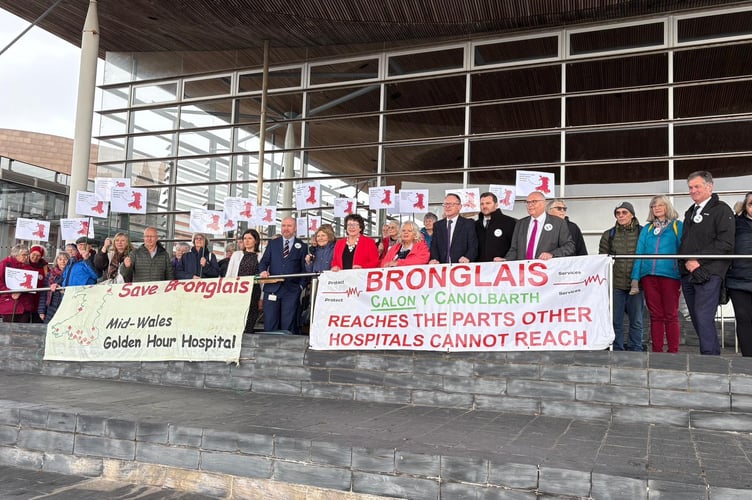
“So, the reasons for Bronglais Hospital being in Aberystwyth, the reasons for the stroke services, as excellent as they are, being in Bronglais, are absolutely pertinent, and need to remain.
“So, this is why I think this debate has been really important here today. This is why I think the cross-party nature of this is really important today, and I commend Lisa, Bryony and the whole team of campaigners who have led on this petition, getting to 17,000 signatures on this.
“We've had many a debate on petitions in this Chamber that have had more signatures, but fewer signatures as well. But this one is a life-and-death petition for those who rely on the services within Bronglais, and I think that we as politicians need to remember that the buck stops with healthcare with the Government—it's not the health board; the health board are enacting what Government policy is—so, it's up to the Government, and I'm looking forward to the Cabinet Secretary's response to this petitions' debate because it's up to the Government to set the direction, and they can put a clear narrative on the table today that they as a Government also agree with us, cross party, that this is not the right way forward.”
Health secretary Jeremy Miles told the Senedd: “Our aim is to reduce the risk of stroke and, when it happens, to give patients the best possible chance to survive and recover”.
Mr Miles was not convinced by the 17,883-name petition, pointing to an “emerging clinical consensus” that acute stroke care should be provided as a specialist service regionally.
Stressing it is a decision for the health board – not the Welsh Government – he said: “The services in their current configuration are not providing the best outcomes for patients, despite the efforts of NHS staff, and they are not sustainable.”
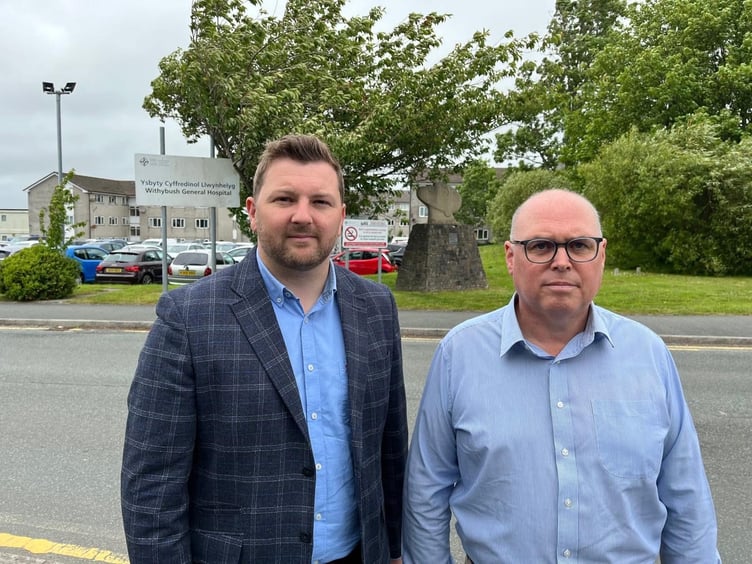


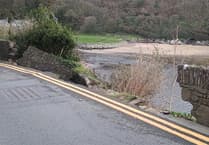

Comments
This article has no comments yet. Be the first to leave a comment.